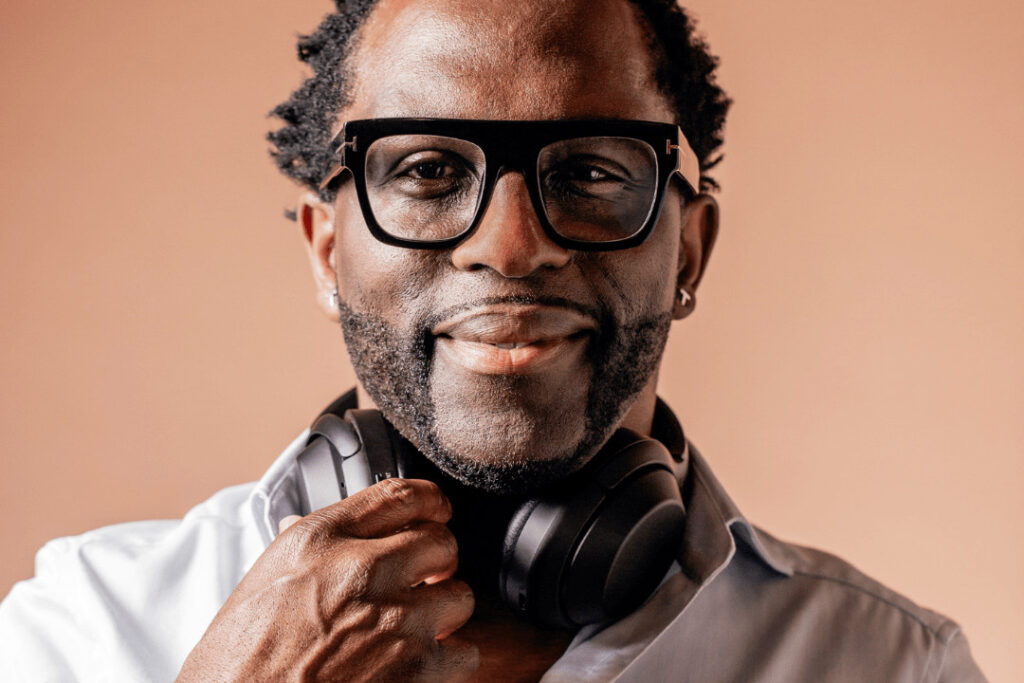Our new research has revealed that millions of music lovers may be at risk of permanent hearing damage.
We polled more than 2000 people who have attended, or plan to attend, a music event in 2024 and found that more than half (58%) of participants have experienced tinnitus or temporary hearing loss after listening to loud music. A third (33%) said they had experienced this multiple times.
Ear damage at live music events
Worryingly, the majority of music lovers overestimate how long they can safely listen to loud music without hearing protection. 78% were unaware that a concert, festival, gig or nightclub at 100 decibels could cause permanent hearing damage after as little as 15 minutes, with many wrongly believing they could listen safely without hearing protection for up to four hours.
Despite the risks, less than a third (32%) of people RNID surveyed have used, or plan to use, hearing protection such as earplugs at a music event this year. Younger people, however, were more likely to use hearing protection. Nearly half (46%) of 25-34 year olds said they do use hearing protection, compared to only 22% of 45-54s year olds.
Teaming up with Tre
We have teamed up with BBC Apprentice 2024 finalist, entrepreneur and musician, Tre Lowe, to raise awareness of the risks of over exposure to loud music and encourage music lovers to protect their hearing.
Tre developed tinnitus at 15, and at times the noise was so overwhelming it sounded like he was “standing on the edge of the M25”. He was regularly exposed to loud music, but didn’t realise the negative effect this would have on his tinnitus.
“There is a real lack of education out there about protecting your hearing and how it’s so easy to damage your ears. I wish I’d known that and that’s why I’m so passionate about getting the message out there.”
Read Tre’s story. Please note this story contains references to suicide.

Franki Oliver, Audiology Manager at RNID, said:
“It’s really concerning that so many music lovers are unaware of the lifechanging damage that loud music can have on your hearing. Whether you are at a live event, or listening to music through headphones, we all need to take steps to protect our hearing to ensure we can continue enjoying music in future.
“In the UK we enjoy an amazing range of festivals, concerts and music events, and there are easy steps we can take to look after our ears. It’s great to see that younger people are more concerned about potential hearing damage, and more likely to use hearing protection like earplugs. Modern earplugs filter out harmful sounds without impacting the quality so you can still enjoy the music – they’re an essential piece of kit for every festival goer this summer.”
How to protect your hearing
At live events
- Take earplugs with you – modern earplugs are reusable, stylish and inexpensive, and will allow you to keep enjoying the music whilst protecting your ears. Many festivals and music events also have disposable earplugs available for free.
- Stand away from the speakers – even short bursts of loud noise can cause permanent hearing damage.
- Take breaks – taking a break somewhere quieter for at least five minutes every hour will help your ears recover.
When using headphones
- Turn the volume down – aim to reduce your volume by 50% and avoid turning the sound up above background noise. Noise cancelling headphones can help avoid this.
- Follow safety prompts on your phone – most phones will warn you if the volume is too loud, so if you get an alert, turn it down a notch.
- Take breaks – as with live events, regular breaks will help your ears recover.

Find hearing protection
Want to check your hearing? Take the RNID hearing check. It’s quick and easy, and takes only three minutes.